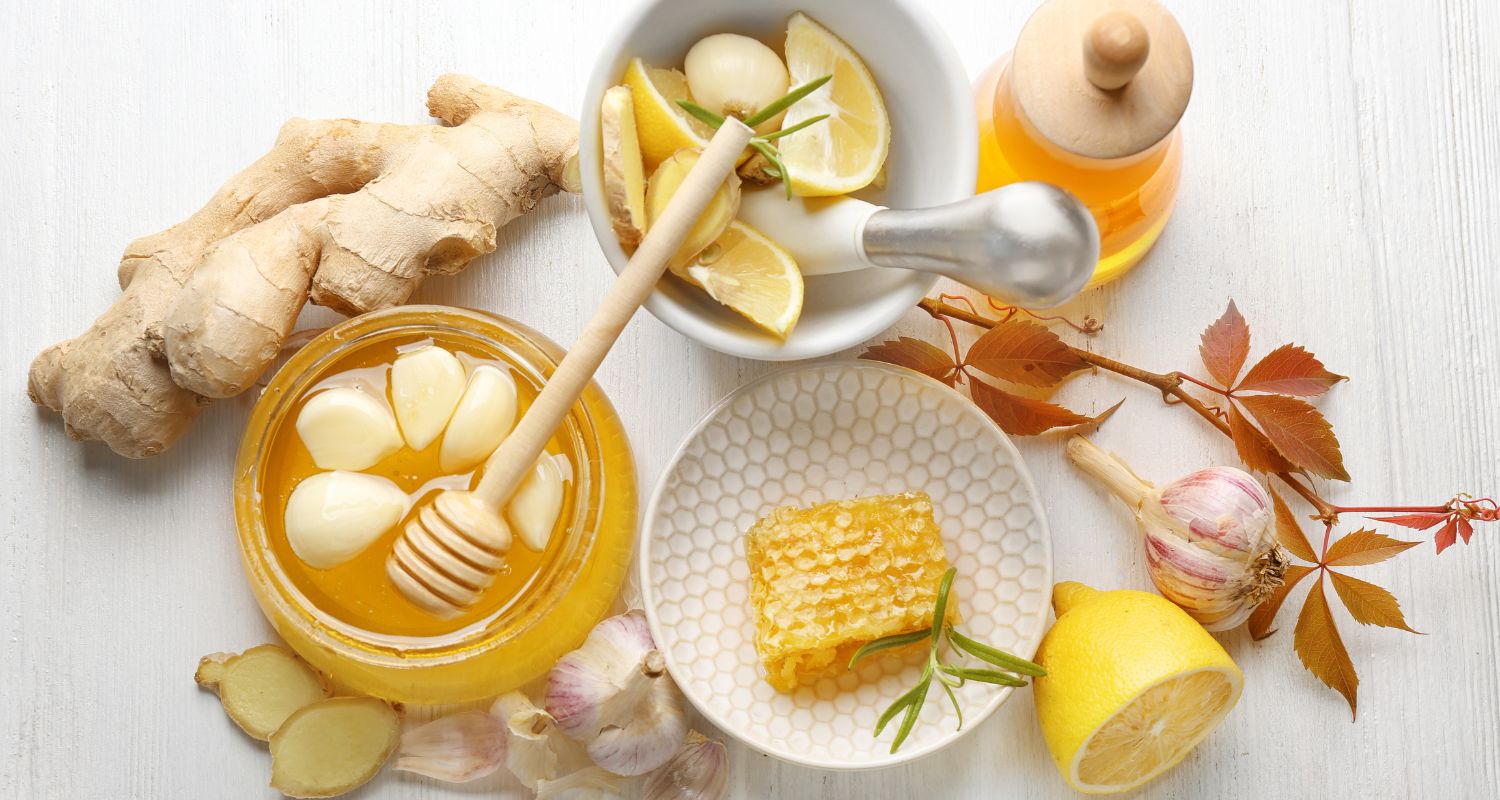Anxiety can be overwhelming and affect many aspects of daily life. That’s why finding natural remedies for anxiety is essential to help promote peace and manage stress. As a professional copywriting journalist, I understand the importance of exploring holistic anxiety solutions to alleviate symptoms.
In this article, I will highlight the best natural remedies for anxiety, including anxiety relief techniques, natural anxiety remedies, and holistic anxiety solutions. I will also provide anxiety management tips, herbal remedies for anxiety, alternative treatments for anxiety, and anxiety-reducing techniques.
By incorporating these natural anxiety supplements and anxiety eliminating methods into your daily life, you can reduce anxiety and promote overall well-being. Read on to discover the best natural remedies for anxiety.
Key Takeaways:
- Natural remedies for anxiety can help manage stress and promote peace in daily life.
- Exploring holistic anxiety solutions is essential to alleviate symptoms.
- Anxiety relief techniques, natural anxiety remedies, and herbal remedies for anxiety are some of the best natural remedies for anxiety.
- By incorporating these strategies into your daily routine, you can reduce anxiety and promote overall well-being.
Understanding Anxiety and Its Effects
As someone who has struggled with anxiety, I understand the impact it can have on daily life. Anxiety can make even the most mundane tasks feel overwhelming, and its effects can be far-reaching and long-lasting.
Some of the common symptoms of anxiety include restlessness, irritability, difficulty concentrating, and trouble sleeping. These symptoms can make it hard to perform well at work or school and can strain personal relationships. Anxiety can also manifest physically, with symptoms such as headaches, muscle tension, and stomach upset.
It’s important to address anxiety and its effects before they become too overwhelming. Left unchecked, anxiety can become a chronic condition that significantly impacts quality of life.
By understanding anxiety and its effects, we can begin to take steps to manage it and improve our overall well-being. In the following sections, we will explore natural remedies for anxiety, including techniques like mindfulness, exercise, and herbal supplements. By incorporating these remedies into our daily routine, we can reduce anxiety levels and promote peace and calm in our daily lives.
Mindfulness and Meditation Techniques
When it comes to managing anxiety, mindfulness and meditation can be powerful tools. Mindfulness involves being present in the moment, focusing on your breath and bodily sensations, and letting go of negative thoughts. Meditation, on the other hand, involves quieting the mind and achieving a state of relaxation.
Both mindfulness and meditation have been found to reduce anxiety levels and improve overall mental health. Practicing these techniques regularly can help you feel more calm and centered, even in stressful situations.
Mindfulness for Anxiety
To practice mindfulness, find a quiet place where you can sit or lie down comfortably. Close your eyes and focus on your breath. As you inhale, imagine that you are breathing in peace and calm. As you exhale, imagine that you are releasing tension and stress.
When your mind wanders, simply acknowledge the thoughts and gently bring your focus back to your breath. You can also practice mindfulness throughout the day by paying attention to your senses and fully immersing yourself in the present moment.
Meditation for Anxiety Relief
Meditation can be done in many different ways, but a common method involves sitting in a comfortable position with your eyes closed, focusing on your breath, and repeating a calming phrase or mantra.
As with mindfulness, it’s normal for your mind to wander during meditation. When this happens, simply acknowledge the thoughts and bring your focus back to your breath and your mantra.
Calming Techniques for Anxiety
In addition to mindfulness and meditation, there are many other calming techniques that can help reduce anxiety levels. Deep breathing exercises, progressive muscle relaxation, and visualization techniques are all effective ways to promote relaxation and reduce stress.
Experiment with different techniques and find what works best for you. Whether it’s a quick mindfulness session in the morning or a longer meditation before bed, incorporating these calming practices into your daily routine can help you manage anxiety and promote overall wellbeing.
Exercise and Physical Activity
Regular exercise and physical activity are essential in reducing anxiety levels and promoting mental health. Exercise not only helps to reduce stress hormones, but it also releases endorphins, which are natural mood boosters.
There are a variety of exercises that can help reduce anxiety levels. Cardiovascular exercises such as running, cycling, and swimming are great options for reducing stress and tension. Strength training and yoga are also beneficial in promoting relaxation and reducing anxiety.
It’s important to find an exercise routine that works best for you and your lifestyle. Even a short 10-minute walk can help reduce anxiety levels and improve overall mood. It’s recommended to aim for at least 30 minutes of physical activity per day to reap the benefits.
Remember to listen to your body and not push yourself too hard. Over-exercising can actually increase anxiety levels and lead to burnout. It’s important to find a balance that works for you.
Herbal Remedies and Supplements
Many herbal remedies and natural supplements have been found to be effective in reducing anxiety. These alternative treatments for anxiety can be used as complementary therapies alongside other natural remedies. However, it is important to consult a healthcare professional before starting any new supplement.
| Herbal Remedies | Benefits | Usage | Side Effects |
|---|---|---|---|
| Valerian Root | Relaxant and sleep aid, reduces nervous tension | Capsules or tea, taken before bedtime | Drowsiness, headaches, upset stomach |
| Kava | Calming effect, reduces anxiety and stress | Capsules or tea, taken as needed | Liver toxicity, dizziness, headaches |
| Passionflower | Sedative and relaxant, reduces nervous tension | Capsules or tea, taken as needed | Drowsiness, dizziness, confusion |
In addition to herbal remedies, there are also natural anxiety supplements that can be taken to alleviate symptoms. Some of the most popular include:
- Omega-3 Fatty Acids: Found in fish oils and flaxseed, omega-3s have been linked to reduced anxiety and improved mental wellness.
- Magnesium: A mineral that plays a key role in regulating the body’s stress response. Supplements can be taken to boost levels and reduce anxiety symptoms.
- L-Theanine: An amino acid found in green tea that has been found to promote relaxation and reduce anxiety levels.
“Herbal remedies and natural supplements can be a great addition to other natural remedies for anxiety. However, it is important to talk to a healthcare professional before starting any new supplement.”
By incorporating herbal remedies and natural supplements into a holistic approach to anxiety relief, individuals can find natural relief for their symptoms.
Breathing Techniques and Relaxation Exercises
When I’m feeling anxious, one of the most effective ways for me to calm down is through breathing techniques and relaxation exercises. These methods are simple but powerful, and can be practiced anywhere, anytime.
Breathing techniques for anxiety relief:
One of the most basic yet effective breathing techniques is deep breathing. To practice this technique, find a quiet place where you can sit or lie down comfortably. Take a slow, deep breath in through your nose for a count of 4, hold for a count of 7, and exhale slowly through your mouth for a count of 8. Repeat for several rounds until you feel more relaxed and centered.
Relaxation exercises for anxiety management:
Progressive muscle relaxation is a technique that involves tensing and releasing different muscle groups in your body to promote relaxation. Start by tensing the muscles in your feet, holding for a few seconds, and then releasing. Move up to your calves, thighs, and so on, until you have reached your head and neck. This exercise can help release physical tension and promote a sense of calm.
Calming exercises for anxiety:
In addition to breathing techniques and relaxation exercises, there are other activities that can help reduce anxiety levels. Yoga and tai chi are both gentle forms of exercise that can promote relaxation and mindfulness. Going for a gentle walk or stretching also allows you to focus on the present moment, promote relaxation and a sense of peace.
Sleep and Anxiety
Getting enough good quality sleep is vital in reducing anxiety levels, improving overall mood and cognitive function. Lack of sleep can often aggravate anxiety symptoms, leading to an increased risk of developing anxiety disorders such as insomnia.
Improving sleep quality can, therefore, be an effective way of relieving anxiety symptoms. Establishing a regular sleep routine and creating a relaxing sleeping environment are essential in promoting restful sleep.
Strategies for Improving Sleep Quality with Anxiety
Here are some tips for improving sleep quality with anxiety:
- Establish a consistent sleep routine, going to bed and waking up at the same time each day.
- Limit caffeine, alcohol, and nicotine intake, particularly in the evening.
- Create a relaxing bedtime routine, such as taking a warm bath or reading a book.
- Avoid using electronic devices before bedtime, as the blue light can interfere with natural sleep patterns.
- Ensure the sleeping environment is cool, comfortable, and free from distractions.
- If possible, avoid napping during the day, as this can interfere with nocturnal sleep.
Anxiety and Insomnia
Insomnia is a common symptom of anxiety, and the two can often exacerbate one another. If poor sleep quality persists despite trying the tips above, it may be beneficial to seek medical advice.
A healthcare professional can offer advice and support on managing insomnia, including information on lifestyle changes, therapies, and medications that can be used to improve the quality of sleep.
Anxiety-Reducing Diet: Managing Anxiety through Nutrition and Diet Tips
Nutrition and diet play a significant role in managing anxiety levels. Incorporating anxiety-reducing foods into your diet can help promote overall well-being and alleviate symptoms of anxiety. Here are some nutrition and diet tips to help manage anxiety:
1. Eat a Balanced Diet
Eating a balanced diet with plenty of fruits, vegetables, whole grains, lean protein, and healthy fats can provide the necessary nutrients your body needs to manage stress and anxiety. Avoid consuming large amounts of sugar, caffeine, and processed foods, which can exacerbate anxiety symptoms.
2. Consume Anxiety-Reducing Foods
There are several foods that have been found to have anxiety-reducing properties. These include:
| Foods | Anxiety-Reducing Properties |
|---|---|
| Fatty fish (such as salmon and tuna) | High in omega-3 fatty acids, which have been found to reduce anxiety levels |
| Dark chocolate | Contains magnesium, which can help reduce symptoms of anxiety |
| Nuts (such as almonds and walnuts) | Rich in magnesium and zinc, which can help reduce anxiety levels |
| Leafy greens (such as spinach and kale) | High in magnesium, which has been found to alleviate anxiety symptoms |
It’s important to note that while consuming these foods can help reduce anxiety levels, they should not be used as a substitute for professional medical advice or treatment.
3. Stay Hydrated
Dehydration can exacerbate symptoms of anxiety, so it’s important to stay hydrated by drinking plenty of water throughout the day.
Incorporating these nutrition and diet tips into your daily routine can help reduce anxiety levels and promote overall well-being. However, it’s important to consult with a healthcare professional before starting any new dietary regimen or making significant changes to your current diet.
Holistic Approaches for Anxiety Relief
When it comes to managing anxiety, taking a holistic approach can be incredibly beneficial. In addition to natural remedies such as mindfulness and exercise, there are other alternative treatments that can help promote relaxation and reduce anxiety levels.
Aromatherapy
Aromatherapy involves using essential oils to reduce stress and promote relaxation. Different scents have different effects on the mind and body, so it’s important to choose an oil that works best for you. For example, lavender oil has been found to be effective in reducing anxiety levels and promoting better sleep.
Acupuncture
Acupuncture is an ancient Chinese practice that involves the insertion of needles into specific points on the body. This practice aims to rebalance the energy flow in the body and promote overall well-being. Research shows that acupuncture can be an effective treatment for anxiety, with some studies suggesting it may be as effective as cognitive-behavioral therapy.
Yoga
Yoga is a mind-body practice that combines physical postures with breathing and meditation. This practice has been found to be effective in reducing stress and anxiety levels. Some yoga poses, such as forward bends and restorative poses, are particularly helpful for promoting relaxation and reducing tension in the body.
By incorporating these holistic approaches into your anxiety management plan, you can take a multi-faceted approach to reducing anxiety levels and promoting overall well-being. It’s important to remember that everyone’s journey to finding the right anxiety management techniques is different, so don’t be afraid to explore different options and find what works best for you.
Managing Anxiety in Daily Life
Living with anxiety can be challenging, but there are techniques and strategies that can help manage symptoms and promote daily anxiety relief. Here are some anxiety management tips and techniques that I have found helpful:
Practice Mindfulness
Mindfulness is a powerful tool that can help us stay present and calm in the face of anxiety. When you notice yourself feeling anxious, try taking a few deep breaths and focusing on the present moment. Pay attention to your senses and surroundings, and try not to judge or resist any thoughts or feelings that come up. Practicing mindfulness regularly can help reduce overall anxiety levels and increase feelings of calm and clarity.
Stay Active
Regular exercise and physical activity can help reduce anxiety and promote overall well-being. Whether it’s going for a run, taking a yoga class, or simply going for a walk outside, find an activity that you enjoy and make it a regular part of your routine. Not only will exercise help reduce anxiety in the moment, but it can also have long-term benefits for mental health and resilience.
Eat a Balanced Diet
The foods we eat can have a significant impact on our mood and anxiety levels. Making sure to eat a balanced diet with plenty of fruits, vegetables, and whole grains can help promote feelings of overall well-being and reduce anxiety. Try to limit caffeine and sugar, which can exacerbate anxiety symptoms, and focus on whole, nourishing foods that will help you feel your best.
Set Boundaries
Setting boundaries and saying no when needed is an important part of managing anxiety. Learning to prioritize your own needs and well-being can help reduce feelings of stress and overwhelm. Make time for activities that bring you joy and relaxation, and try to avoid overcommitting yourself or taking on too much at once.
Connect with Others
Feeling connected to others can be a powerful way to reduce anxiety and promote feelings of support and well-being. Whether it’s spending time with loved ones, joining a support group, or simply chatting with a friend, finding ways to connect with others can be a valuable part of anxiety management.
Overall, managing anxiety is about finding what works best for you and incorporating techniques and strategies into your daily routine. By prioritizing self-care, staying active, and staying connected with others, you can gradually reduce feelings of anxiety and promote overall well-being.
Conclusion
Wrapping up, it’s important to prioritize our mental health and find natural remedies for anxiety that work for us. Whether it’s practicing mindfulness and meditation, incorporating regular exercise and physical activity, or exploring herbal remedies and supplements, there are many ways to manage anxiety holistically.
It’s crucial to understand the nature of anxiety and its effects on our daily lives. By identifying symptoms, we can take steps towards finding relief through natural anxiety management techniques.
Incorporating breathing techniques and relaxation exercises into our daily routine can be effective in calming the mind and reducing anxiety levels. Similarly, prioritizing sleep and adopting an anxiety-reducing diet can have a positive impact on our overall well-being.
Exploring alternative treatments such as aromatherapy, acupuncture, and yoga can also complement other natural remedies for anxiety relief.
Remember to prioritize self-care and stress management in daily life, setting boundaries and finding what works best for you in managing anxiety.
In conclusion, let’s prioritize our mental health and explore natural remedies for anxiety so we can find peace and promote well-being in our daily lives.






